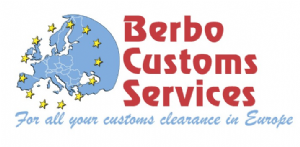Tax regulations in the European Union are different in each individual member state
Import duties and VAT on import
Goods that you sell from a webshop outside the Europe Union towards an European consumer, which are pre-labeled and shipped directly, can benefit from tax exemptions.
This kind of sales transactions is called B2C.
Customers doesn’t have to pay import duties for shipments below € 150,00. The % of import duties differ per product and are only applicable for shipments with a value above € 150,00.
Offering a competitive price which includes all costs is an option for European customers. It will promote brand loyalty and a happy and returning customer. This is what really matters to be successful in e-commerce.
The VAT rates in all of the 28 European Union member states differ from 17,0% in Luxemburg to 27,0% in Hungary. The Netherlands calculate with a VAT rate of 21,0%. Per March 29th, 2019, the UK will leave the EU as a result of the Brexit.
In our Dutch e-commerce solution, you and your European customers will always pay 21,0% VAT for orders above € 150,00 except for foodstuff, which is charged at a tax rate of 6,0%.
These percentages are easy to implement in your web shop and apply to all European countries. There are some products without duties like electronics and some with duties as high as 16,8% such as shoes. Based on the Combined Nomenclature of the European Union, duties can be easily determined.
If you use mail services, the worldwide postal organization offers really low prices but also a low and slow service. If you use one of the integrators, UPS, FEDEX, DHL or TNT for example, the delivery is fast, but the quality of service is uncertain as your client does not know whether to pay Customs clearance costs and taxes when receiving the package at atheir door.
Each package is declared for Customs in the country of destination in a more or less compliant way using particular formalities which only the mail and the integrators can apply. Despite the new European Customs Code (UCC), which came into effect on May 1st, 2016, they still have an oligopoly that limits competition and makes clearance expensive.
Our e-commerce solution eliminates this issue. As all costs and taxes are calculated and paid at the checkout page of the webshop, there is no longer any need to collect the money from your customer at their frontdoor. Only the integrator service and the mail service have an infrastructure to collect this money, which gives them the possibility to keep out competition and keep charging your European customer high Customs clearance costs.

